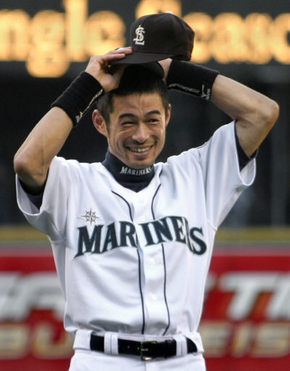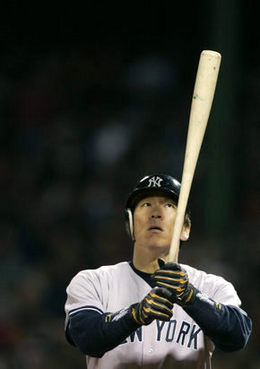 |
|
Ichiro Suzuki of the Seattle Mariners
|
U.S. teams look to Japan’s league to bolster fan base, profits
In April 2005, U.S. business magazine Forbes carried a story about the Seattle Mariners, which as an enterprise raked in an average US$163 million annually over the previous five years. The magazine attributed the U.S. baseball team’s success to their import of Japanese star player Ichiro Suzuki. According to the magazine, the number of baseball tickets sold in 2001, the year Ichiro was imported, rose 12 percent from the year prior. During Ichiro’s first season, Seattle Mariners sold an average of 43,300 tickets per game, topping the list among the American League’s 14 baseball teams. The year prior, the Seattle Mariners sold an average of 35,983 tickets a year, or fourth in the American League. Another ‘Ichiro Effect’ was seen. After he was purchased by the team, it was usual to see a crowd of Japanese tourists in front of the Mariners’ stadium wearing T-shirts bearing the team’s logo. According to the magazine, Japanese visitors account for 10 percent of the Seattle Mariners’ memorabilia sales. Besides profits, Ichiro also played well. The Seattle Mariners paid $13.12 million to recruit Ichiro, but the money was recovered by mid-2001 from other revenue sources. For example, in 2000, Seattle Mariners signed a 10-year, $250 million broadcasting contract with Fox TV.
 |
|
Hideki Matsui of the New York Yankees
|





